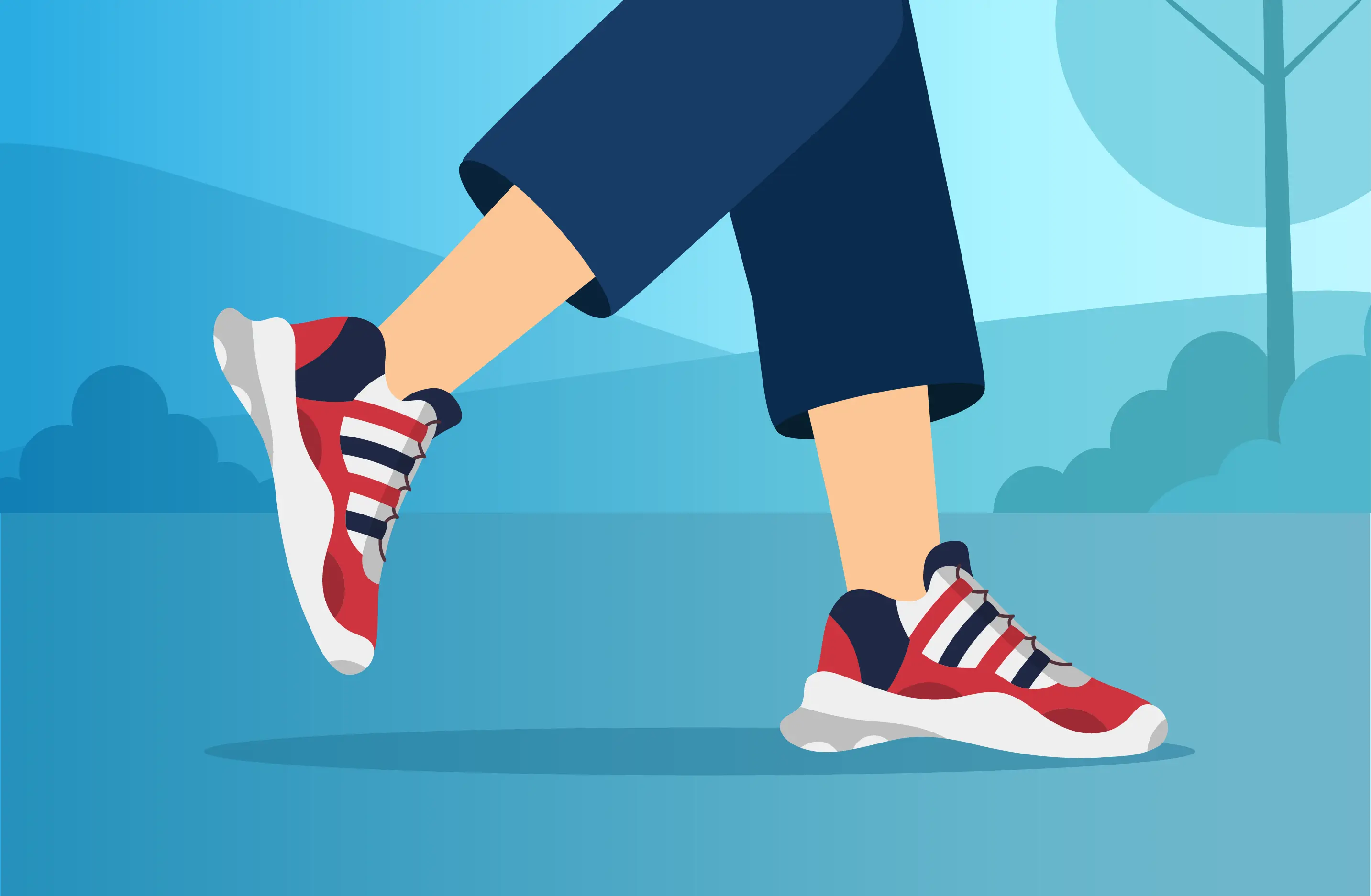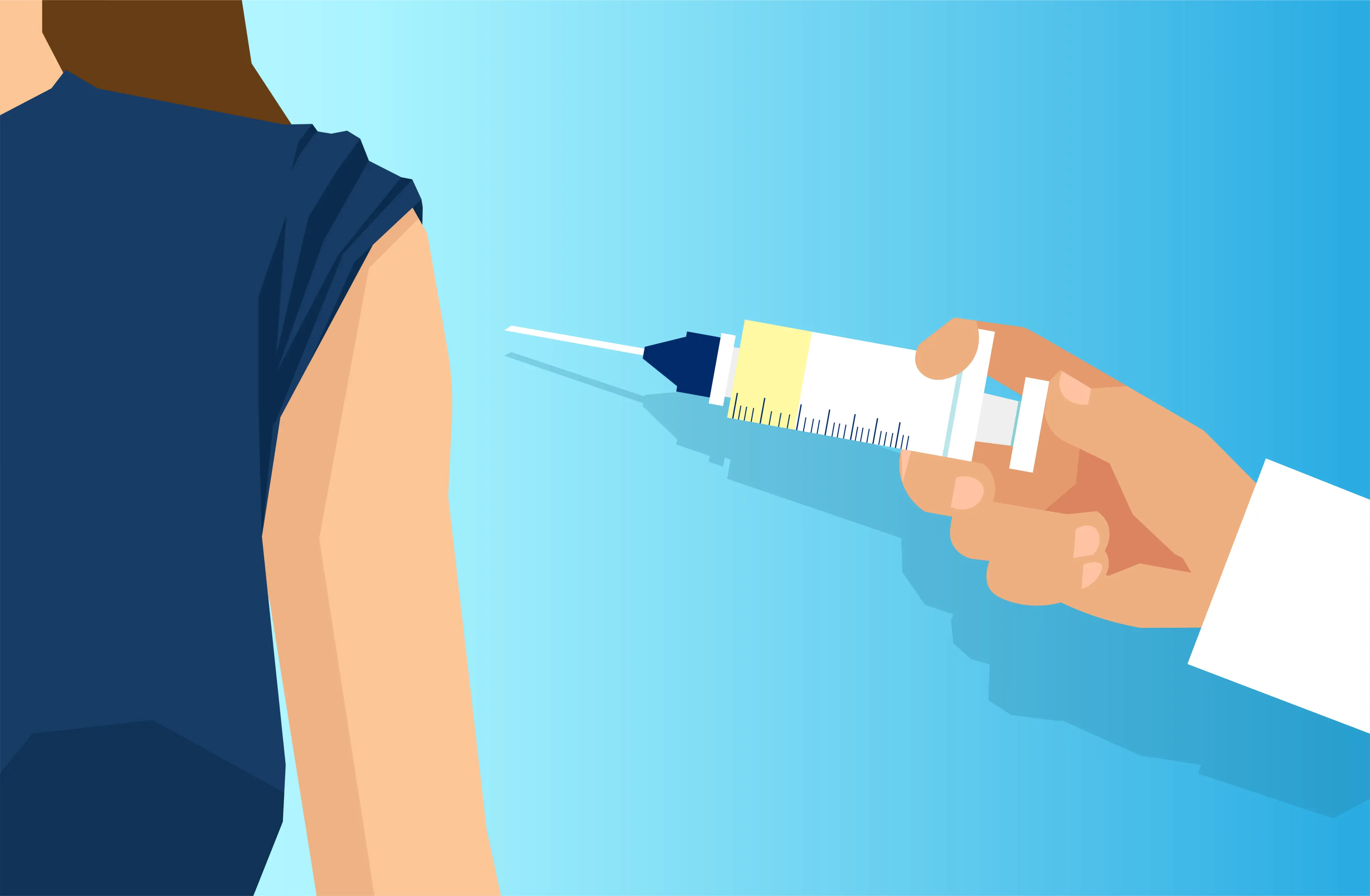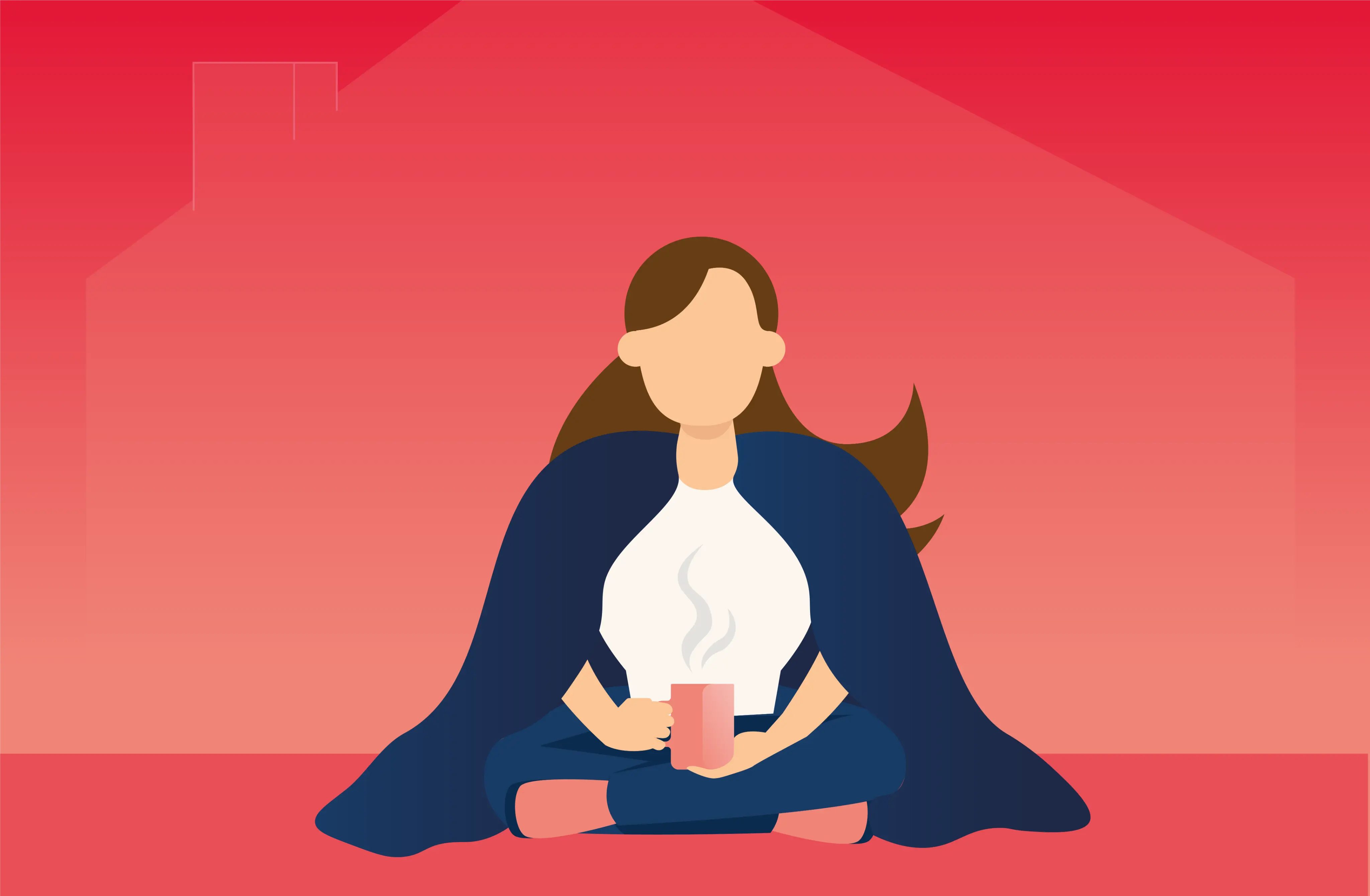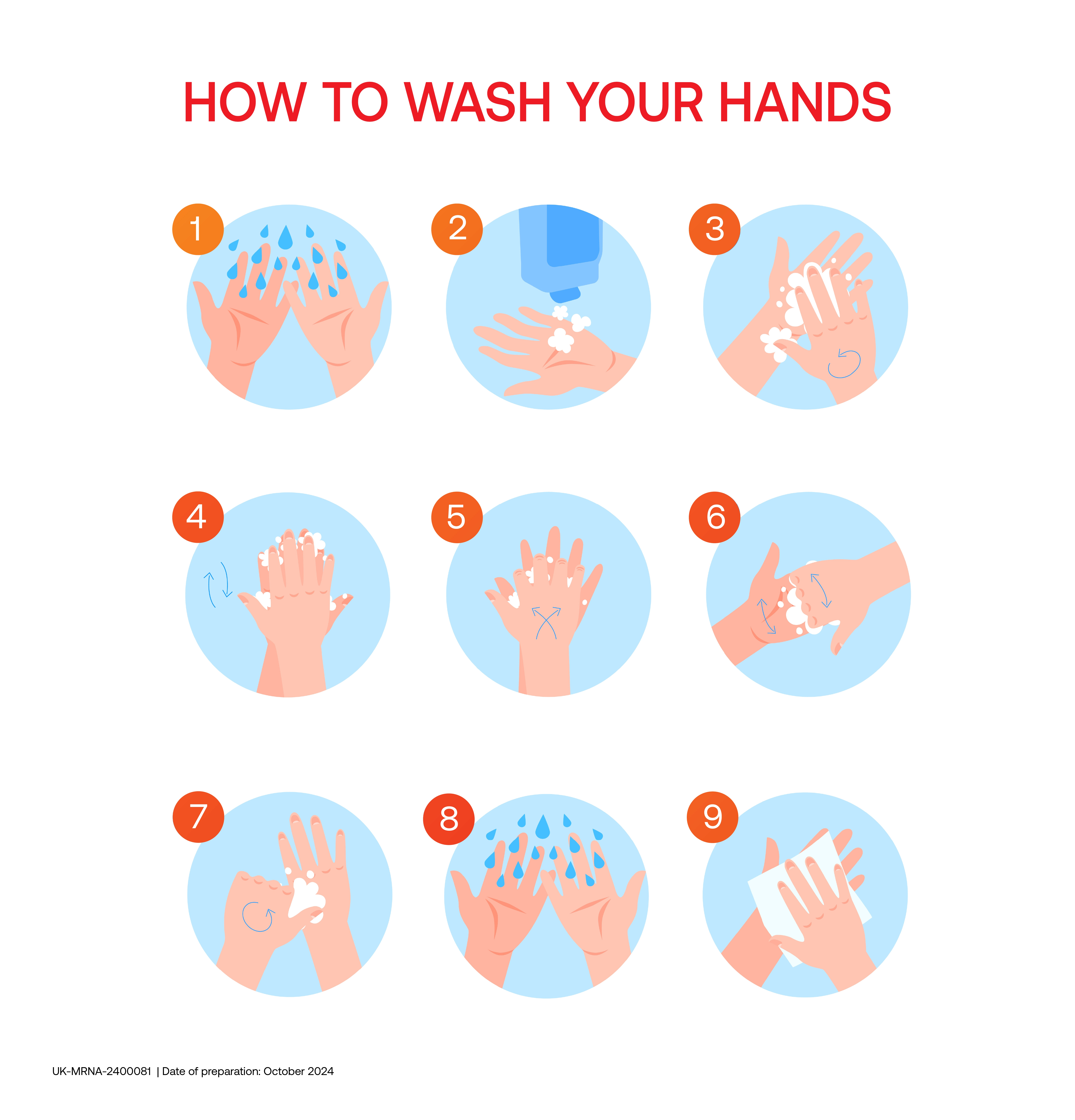Stay on track
Speak to your GP or Pharmacist this autumn to help prevent winter illness
Stay on track this winter!
Life can be busy and it's not always easy to fit everything in. Getting ill can have a big impact on daily life, not only making you feel unwell but also preventing you from going to work, getting the kids to school and doing the things you enjoy. As we enter autumn and winter, it is particularly important for people with a body mass index (BMI) of 40 and above to prioritise their health. In partnership with Obesity UK, we have developed five preventative steps to help you stay healthy and avoid illness, so you can stay on track, and continue living life to the full.
Check your eligibility for vaccination
As part of the NHS’ vaccination programmes, vaccines against respiratory viruses such as flu and COVID-191,2 are offered to people who are at increased risk of contracting a virus and getting ill. People with a BMI of 40 and above are often eligible for these vaccines due to their higher risk status.
Check if you are eligible for a flu and/or COVID-19 vaccine by entering your date of birth and requested information into our calculator.
Please note that the list of health conditions shown in the calculator are a summary and does not cover everything. For more information, please visit the NHS website for flu and COVID-19, or alternatively, reach out to your GP or pharmacist.
The data you enter into this calculator is not stored and is only used for calculating your eligibility.
Results
Eligible for flu and COVID-19 vaccines
Based on the information you have provided it is likely that you are eligible for a free NHS flu and COVID-19 vaccination as part of the National autumn vaccination programme.
You may have already received a message from the NHS asking you to come forwards for your vaccine, if you have not received anything yet, please reach out to your GP surgery.
Please note that these results are based on guidance from NHS England. Vaccine eligibility may vary in Wales, Scotland and Northern Ireland.
For guidance on what else you can do this autumn to stay on track, see our other preventative tips.
Results
Eligible for COVID-19 vaccine
Based on the information you have provided it is likely that you are eligible for a free NHS COVID-19 vaccination as part of the National autumn vaccination programme.
You may have already received a message from the NHS asking you to come forwards for your vaccine, if you have not received anything yet, please reach out to your GP surgery.
Please note that these results are based on guidance from NHS England. Vaccine eligibility may vary in Wales, Scotland and Northern Ireland.
For guidance on what else you can do this autumn to stay on track, see our other preventative tips.
Results
Eligible for flu vaccine
Based on the information you have provided it is likely that you are eligible for a free NHS flu vaccination as part of the National autumn vaccination programme.
You may have already received a message from the NHS asking you to come forwards for your vaccine, if you have not received anything yet, please reach out to your GP surgery.
Please note that these results are based on guidance from NHS England. Vaccine eligibility may vary in Wales, Scotland and Northern Ireland.
For guidance on what else you can do this autumn to stay on track, see our other preventative tips.
Results
Not currently eligible
Based on the information you have provided it is likely you are not currently eligible for a free NHS flu or COVID-19 vaccination as part of the National autumn vaccination programme.
Please note that the eligibility criteria provided was for guidance only. To confirm your eligibility, please consult the NHS website for flu and COVID-19, or speak to your GP or pharmacist.
These results are based on guidance from NHS England. Vaccine eligibility may vary in Wales, Scotland and Northern Ireland.
For guidance on what else you can do this autumn to stay on track, see our other preventative tips.
Calculating your BMI
A BMI of over 40 means you are eligible to receive a vaccination as part of the NHS autumn vaccination campaign1,2. BMI is a measure of whether you are a healthy weight for your height.
If you are not sure what your BMI is, you can use our BMI calculator.
The data you enter into this calculator is not stored and is only used to calculate your BMI.
Preventing winter illness
The weather conditions during the autumn and winter months bring increased cases of influenza, COVID-19, and other illnesses each year3. While you can’t always stop getting ill, there are steps that can be taken to help reduce your chances.
We are working with Obesity UK to try and help those with a BMI of 40 and over, by sharing tips to help prevent illness. As part of this, we have identified five preventative measures that can be taken this autumn to stay on track. However, tips and guidance on helping to prevent winter illness are for everyone. Find out more below.
Staying healthy and active
The vitamins and minerals you get from a healthy and balanced diet can help you feel more energised and support your immune system, helping to prevent and fight off winter illness4,5.
Keeping active can support a quicker recovery if you do get ill6, with some studies showing that regular exercise can have an overall anti-inflammatory influence on the body, therefore decreasing risk of illness7. Getting outside for a walk to get some sunlight on your skin is also beneficial8, as people living with obesity can often be deficient in vitamin D9.

Vaccination
Vaccination is the best form of protection against winter viruses, such as influenza and COVID-19, and can help you stay on track this autumn4.
Each year the NHS run vaccination campaigns for free flu and COVID-19 vaccines for eligible groups.
Check if you are eligible for a flu and/or COVID-19 vaccine by using our eligibility calculator.

Sleep habits
Having a consistent sleep cycle (i.e. waking up and going to sleep at the same time each day) has been shown to be important for different areas of health and wellness10 and having varied sleep/wake patterns can lead to an increase in health problems11.
Getting enough quality sleep each night is important for your immune system, which can help lower your risk of common winter illnesses like cold and flu12.
For tips on how you can sleep better, visit the NHS website.

Stay warm
It’s recommended to keep your home at 18°C in the rooms you use most, like your bedroom and living room. Here are a few tips to consider to help keep you and your home warm4.
- Keep your bedroom windows closed at night
- Wear several layers of thinner clothing rather than one thick layer
- Eat at least one hot meal a day
- Try to reduce draughts using draught excluders

Hand hygiene
We are all aware of the benefits of handwashing and how they can protect yourself and others from catching viruses6.
When handwashing, don’t forget to sing happy birthday (twice!).

Reporting of side effects
If you get any side effects following vaccination, talk to your doctor, pharmacist or nurse. This includes any possible side effects not listed in the package leaflet.
You can also report side effects directly via the Yellow Card Scheme website: https://yellowcard.mhra.gov.uk/
By reporting side effects, you can help provide more information on the safety of this medicine.
1. Flu vaccine (2023) NHS. Available at: https://www.nhs.uk/vaccinations/flu-vaccine/. Last accessed: October 2024.
2. COVID-19 vaccine (2024) NHS. Available at: https://www.nhs.uk/vaccinations/covid-19-vaccine/. Last accessed: October 2024.
3. Acute respiratory infections in the EU/EEA: epidemiological update and current public health recommendations (2023) European Centre for Disease Prevention and Control. Available at: https://www.ecdc.europa.eu/en/news-events/acute-respiratory-infections-eueea-epidemiological-update-and-current-public-health. Last accessed: October 2024.
4. Keeping well this winter (2023) NHS. Available at: https://northeastlondon.icb.nhs.uk/wp-content/uploads/2023/11/Tower-Hamlets-winter-wellness-guide-English.pdf. Last accessed: October 2024.
5. Winter wellness: how to keep healthy and warm (2022) British Heart Foundation. Available at: https://www.bhf.org.uk/informationsupport/heart-matters-magazine/medical/winter-wellness. Last accessed: October 2024.
6. NHS StayWell leaflet (2023) NHS. Available at: https://assets.nhs.uk/nhsuk-cms/documents/502660_NHS_HUHY_STAYWELL_12PP_LEAFLET_AW_7_a_Web.pdf. Last accessed: October 2024.
7. Nieman, D et al. The compelling link between physical activity and the body's defense system. J Sport Health Sci. 2019 May; 8(3): 201–217.
8. NHS. Vitamin D. Good sources of vitamin D. Available at: https://www.nhs.uk/conditions/vitamins-and-minerals/vitamin-d/. Last accessed: October 2024.
9. Vranić, L et al. Vitamin D Deficiency: Consequence or Cause of Obesity? Medicina (Kaunas). 2019 Sep; 55(9): 541.
10. Sletten, L et al. The importance of sleep regularity: a consensus statement of the National Sleep Foundation sleep timing and variability panel. Sleep Health.2023 Dec; 9(6);801-820.
11. Chaput, J et al. Sleep timing, sleep consistency, and health in adults: a systematic review. Applied Physiology, Nutrition and Metabolism. 2020 Oct; 45(10); S232-S247.
12. Garbarino, S et al. Role of sleep deprivation in immune-related disease risk and outcomes. Communications Biology 2021; 4:1304.
© 2025 Moderna UK-MRNA-2400067 Date of preparation: October 2024